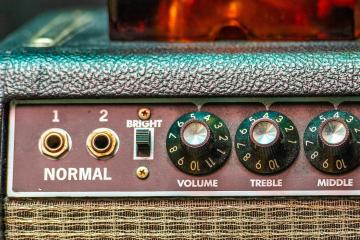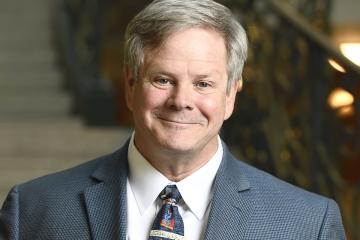Global experts, educators, musicians, and healthcare providers will gather July 9 at the Johns Hopkins University Bloomberg Center in Washington, D.C., to discuss the critical importance of physical and mental health in music.
The Occupational Health in Music Global Summit was organized by Bloomberg Distinguished Professor of Performing Arts Health Kris Chesky to delve into a range of topics, from the structure, organization, and culture of tertiary music institutions to the role of healthcare professionals in supporting the physical and mental well-being of musicians. In a dynamic eight-part session with an option to attend virtually, scholars will first define the scope of the problem and propose transformative solutions.
For most musicians, conditions like hearing loss, musculoskeletal injuries, and voice disorders are considered a natural part of a life devoted to music. Chesky and the event's presenters challenge this perspective, asserting that a career in music does not have to come at the expense of physical and mental health. They argue that the prevailing culture in music schools frequently overlooks this reality, leaving students and faculty ill-equipped to address the problem.
"Occupational health is not prioritized in most tertiary music schools," Chesky says. "Across the discipline, only a few required courses exist on injury prevention. With occupational health training, the very people responsible for shaping the next generation of musicians will be sufficiently equipped to prevent negative health outcomes directly associated with learning, performing, creating, and consuming music."
The conference will open with a discussion on how music functions as an occupation that can simultaneously enhance and endanger health. Presenters will critically evaluate current initiatives aimed at promoting occupational health in music and examine institutional roles and identities that limit accountability and prevent systematic change around physical and mental health in music. Following this analysis, speakers will chart a new path forward, introducing models and frameworks that offer recommendations for reform.
In the second half of the summit, presentations will revolve around the theme of the essential and unique roles faculty play in shaping the occupational health of music students and, by extension, the broader culture of music schools. This session will emphasize the influence and responsibility of studio faculty, ensemble directors, music educators, music therapists, and administrators in fostering a healthier future for the discipline.
By the end of the day, Chesky hopes that participants will walk away with a clear understanding that "music schools need to own the responsibility to ensure that every educated musician is aware, knowledgeable, and competent in managing music specific occupational health concerns on behalf of themselves, audiences, and students."
The Global Summit on Occupational Health in Music was made possible by the Johns Hopkins University Nexus Awards. A full schedule is available on the Occupational Health in Music Global Summit's website.
Posted in Arts+Culture
Tagged occupational health, bloomberg distinguished professors









